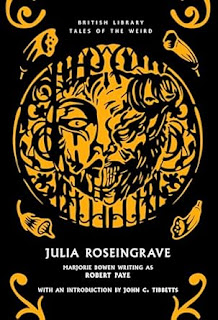I have a bit of a mystery on my hands tonight. I got Forgotten Churches a month or two back, it's a charming book (with one really annoying typo in a small index that suggests Hexham is in Northamtonshire rather than Northumberland). I was certain it was where I read about Holy Trinity in Rothwell, but now I find it's not in there, although it seems to me it should be.
Forgotten Churches is a beautifully illustrated guide to Britains architectural history through a small collection of not particularly well known churches - though I have been to a handful of them in the past. A perk of having a partner who's an architectural historian is that we both really enjoy a good church and will stop at any we see even if access is impossible. There are a few in this book that aren't too far away that we'll make a point of going to.
So where did I read about Holy Trinity? It was reasonably recently, and then I saw a picture on either Blue Sky or Instagram that reminded me again about it. Rothwell is roughly 25 miles from Leicester, a charming town not far from Rushton Trianguler lodge - the whole area is associated with the Tresham family. Rothwell has a curious building adjacent to Holy Trinity called the Market House which was begun by Thomas Tresham and is as codedly catholic as Rushton, his son, Francis, was involved in the gunpowder plot.
Tresham seems to have run out of funds and left the market house without a roof - it was finally finished in the 1890s. Holy Trinity is one of only two churches that I can find in the UK that have ossuaries - the other is St Leanoard's in Hythe. You can book to go and see it on a Sunday afternoon through the summer months - admission is limited to around 6 people at a time and there are only 4 sessions per Sunday so booking is advised. I booked.
We weren't sure what to expect - I did wonder if it would be morbid, there are apparently the remains of over two thousand people in that small crypt, but whilst no, I wouldn't want to go down there on my own particularly, it was neither morbid nor especially creepy. It was surprisingly emotional, but the predominant emotion was one of calm in the face of so much mortality. It's likely it was a stopping point for pilgrims and may always have been intended to have visitors.
The rest of the church is stunning with some fine 15th century misericords to look at along with the medieval stonework and later additions. It was an interesting day out, I'll go back to Rothwell to see more first opportunity I get, though perhaps not back to the crypt, a second visit might be morbid now I've seen it.

.jpeg)







